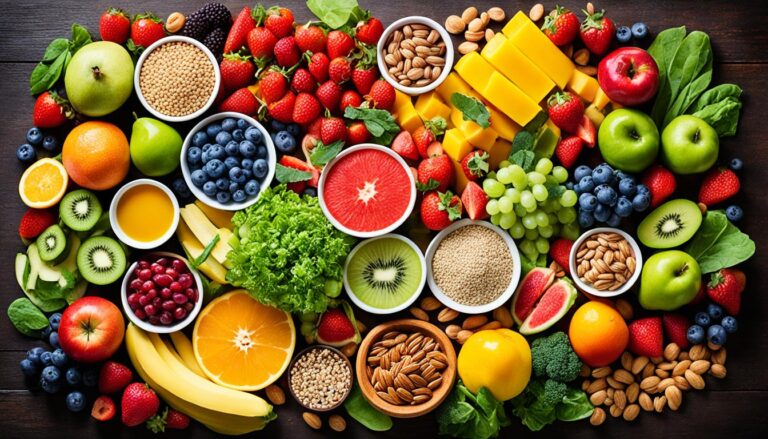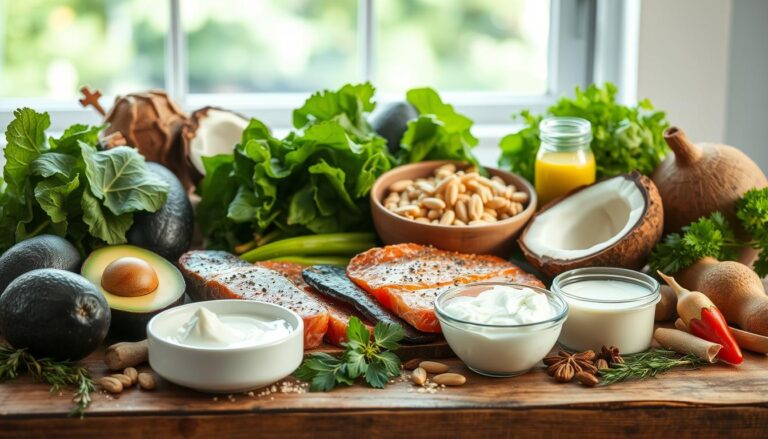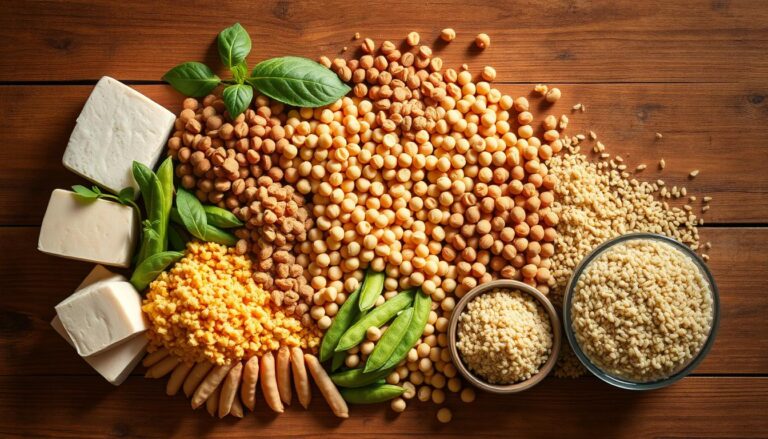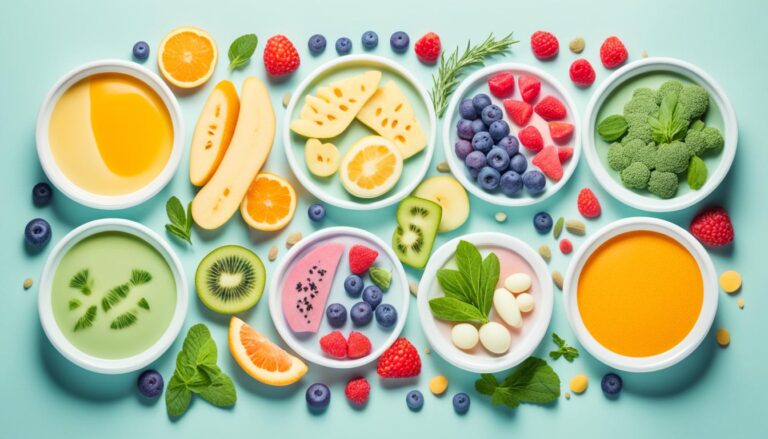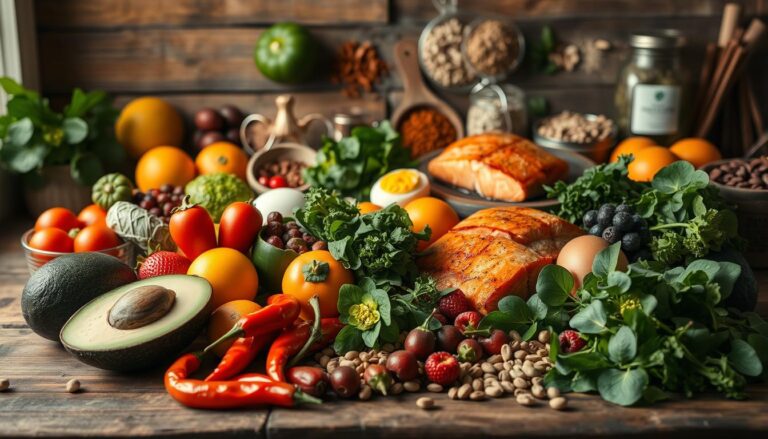What makes red onions a superfood? How can they boost your health? Red onions are packed with nutrients. They have antioxidants and might fight cancer.
They’re also full of fiber vitamins, and minerals.
With their sweet taste red onions are great in many dishes. They add flavor to salads and soups. This makes them a fantastic choice for a healthy diet.
Red onions are called superfoods because of their antioxidants. They’re rich in quercetin, a compound that’s good for you. Eating red onions can help lower heart disease and cancer risks.
They’re a smart addition to your meals. Red onions are not just tasty; they’re also good for you.
Key Takeaways
- Red onions are a nutrient-dense food that provides various health benefits.
- They are a good source of fiber vitamins, and minerals making them an excellent addition to a healthy diet.
- Red onions have antioxidant properties and potential cancer fighting abilities.
- They are a rich source of quercetin a flavonoid compound known for its health benefits.
- Incorporating red onions into your diet can help reduce the risk of heart disease certain cancers, and other chronic conditions.
- Red onions are a versatile ingredient that can be used in a variety of dishes from salads to soups.
Understanding Red Onions Nature’s Purple Powerhouse
Red onions come from Central Asia and are known for their deep red or purple color. They have a sweet, mild taste. They’re loved in many cuisines like Mediterranean, Asian, and Latin American cooking.
The cultural significance of red onions is clear in their role in traditional dishes and ceremonies. They often symbolize love and passion.
The origins of red onions go back to ancient times. They’re grown for their unique characteristics like flavor texture, and color. There are many varieties each with its own traits and uses. Some favorites include the Tropea onion the Red Wing onion, and the Shallot onion.
Red onions add flavor to many dishes and hold deep cultural significance in many societies. In some places they’re seen as having medicinal powers. In others they’re a sign of good luck and prosperity.
Their characteristics like antioxidants and high fiber make them a hit with health fans. The unique varieties of red onions along with their rich origins and cultural significance make them a treasure to explore. They’re used in cooking ceremonies, and as symbols of love and passion.
The Nutritional Profile of Red Onions
Red onions are packed with nutrients offering many health benefits. They are full of fiber vitamins and minerals. This makes them a fantastic choice for a balanced diet. A 100-gram serving of raw red onions has 37 calories 2 grams of fiber, and key nutrients.
They are rich in vitamins C and K potassium, and manganese. Plus they are low in calories and full of antioxidants. These antioxidants help fight chronic diseases like heart disease and cancer. The National Onion Association says red onions have more quercetin than white onions.

Here’s a quick look at the nutritional content of one cup of chopped red onions:
| Nutrient | Amount |
|---|---|
| Calories | 64 |
| Carbohydrates | 14.9g |
| Fiber | 2.72g |
| Protein | 1.76g |
Eating red onions can lower the risk of heart disease and cancer. They are not only nutritious but also low in calories. This makes them a great part of a healthy diet.
Why Are Red Onions the Healthiest Among All Varieties?
Red onions stand out as the healthiest because of their high antioxidant content better flavonoid composition, and more bioactive compounds. These elements are key to their health benefits making them great for a balanced diet.
Their antioxidant content is especially high, more than white and yellow onions. This is because of their deep color thanks to more flavonoids. Flavonoids fight inflammation which can prevent chronic diseases.
- Higher antioxidant content to protect against chronic diseases
- Superior flavonoid composition for anti-inflammatory effects
- Enhanced bioactive compounds for potential health benefits
In summary, red onions are a nutritious choice. They offer many health benefits because of their antioxidants flavonoids, and bioactive compounds. This makes them the healthiest among all onions.
Powerful Antioxidants in Red Onions
Red onions are packed with antioxidants like quercetin and anthocyanins. These have many health benefits. They help fight oxidative stress and inflammation, lowering the risk of heart disease and cancer.
Their high antioxidant levels come from a mix of flavonoids and polyphenols. This makes red onions a great choice for a healthy diet.
Some of the key antioxidants in red onions include:
- Quercetin, a flavonoid that has anti-inflammatory properties and can help reduce the risk of heart disease
- Anthocyanins powerful antioxidants that have been shown to have anti cancer properties
- Polyphenols which can help protect against cell damage and promote overall health and well being
Research shows that red onions’ antioxidants protect cells and boost health. They are a fantastic addition to a healthy diet offering many benefits and reducing disease risk.
Red onions are a superfood due to their health benefits and high antioxidant content. They are a great choice for a healthy diet, providing antioxidants and supporting overall health.
Heart Health Benefits of Red Onions
Red onions are packed with antioxidants and fiber making them great for your heart. They help lower blood pressure and boost heart health. The antioxidants and flavonoids in them also fight oxidative stress and inflammation, protecting your heart.
Eating red onions can improve your cholesterol levels. Studies show they can lower heart disease risk. The quercetin in red onions fights cancer cells and reduces inflammation adding to their heart-healthy benefits.
- Reducing blood pressure and cholesterol levels
- Providing antioxidant and anti-inflammatory effects
- Supporting cardiovascular protection
Adding red onions to your meals is a smart move for your heart. They’re full of antioxidants and can help lower blood pressure and cholesterol. Red onions are a key part of a heart-healthy diet.
Cancer Fighting Properties of Red Onions
Red onions are packed with cancer fighting compounds like quercetin and anthocyanin. These help fight cancer making them great for a healthy diet.
Research shows that red onions’ cancer-fighting power comes from anthocyanin and quercetin. These work together to boost health. The antioxidants and flavonoids in red onions also fight oxidative stress and inflammation which can lead to cancer.
Red onions offer many benefits including:
- High levels of quercetin, a strong anti-cancer agent
- High levels of anthocyanin, which boosts quercetin’s cancer-fighting effects
- Antioxidant and anti-inflammatory properties, protecting cells and promoting health
Researchers at the University of Guelph discovered that Ontario grown red onions have more quercetin than onions from other places. This makes them a top pick for adding cancer fighting foods to your diet.
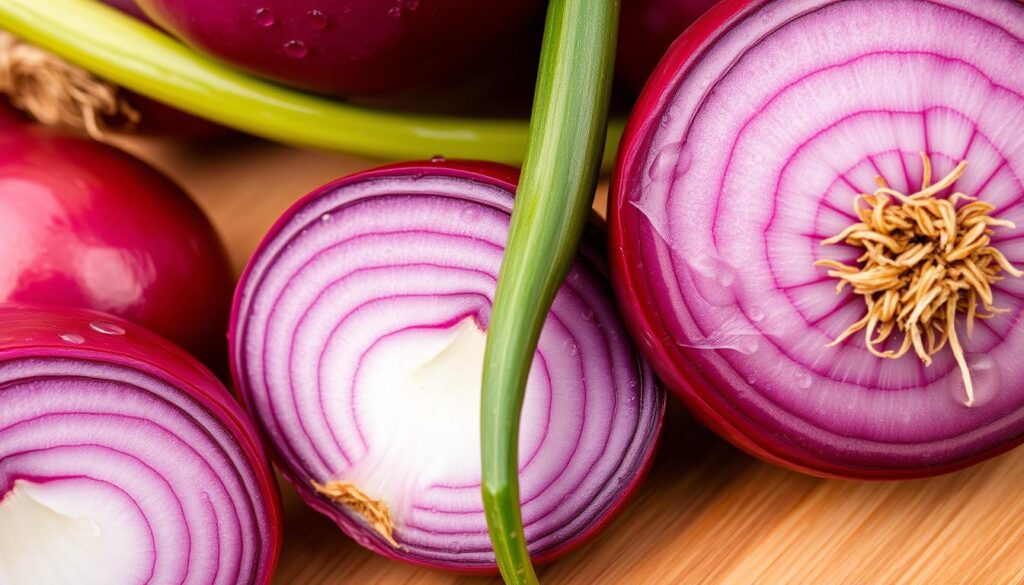
Read more: Antioxidant Foods Nourish Your Body Naturally
In summary, red onions are a tasty and healthy choice for any diet. Their cancer-fighting properties make them a great option for lowering cancer risk.
| Compound | Benefit |
|---|---|
| Quercetin | Anti-cancer effects |
| Anthocyanin | Enhances cancer-fighting properties of quercetin |
| Antioxidants | Protect against oxidative stress and inflammation |
Blood Sugar Management and Diabetic Benefits
Red onions can help manage blood sugar and support diabetic health. They have a low glycemic index of 10 making them great for people with diabetes. The fiber and antioxidants in red onions slow down sugar absorption promoting health.
The fiber in red onions, especially fructans helps with constipation common in diabetics. Antioxidants like anthocyanins and quercetin protect against oxidative stress and inflammation. These can help prevent diabetic complications.
Glycemic Control
Eating foods with a low glycemic index like red onions, can control blood sugar. They release sugars slowly helping to keep blood sugar levels stable and improve insulin sensitivity.
Insulin Sensitivity
Red onions contain chromium, which helps regulate blood sugar and slow down carbohydrate absorption. Regularly eating red onions may reduce insulin resistance. This can improve blood sugar control for diabetics.
Here is a summary of the nutritional benefits of red onions:
| Nutrient | Amount per 100g |
|---|---|
| Calories | 46 |
| Carbohydrates | 11g |
| Fiber | 2g |
| Protein | 1.3g |
| Vitamin C | 12mg |
| Folate | 30mcg |
Incorporating Red Onions into Your Diet
Red onions are a great addition to a healthy diet. They offer many nutritional benefits. Their sweet and tangy flavor makes them perfect for salads, sandwiches, soups, and stir-fries.
One of the best ways to enjoy red onions is raw. This way, you get the most from their antioxidants.
Raw Consumption Benefits
Raw red onions are packed with quercetin a powerful antioxidant. They also have lots of fiber vitamin C, and other nutrients. Adding them to salads sandwiches, or dips is a great way to boost your diet.
Cooking Methods
Cooking red onions brings out their sweetness and adds depth to dishes. You can caramelize roast or sauté them. Caramelized onions are great on burgers and in salads. Roasted onions make a tasty side dish or add to soups. Sautéed onions are versatile, perfect for stir-fries and pasta sauces.
Recipe Suggestions
Here are some recipe ideas to get you started:
- Grilled chicken and red onion salad: a simple salad with grilled chicken raw red onions, and tangy vinaigrette
- Red onion and mushroom soup: a hearty soup with caramelized red onions, mushrooms, and spices
- Red onion and avocado salsa: a fresh salsa with raw red onions, avocados, and lime juice

Adding red onions to your diet can boost your health. They’re full of antioxidants fiber, and other nutrients. Whether raw or cooked red onions can enhance your favorite dishes and support a healthy diet.
Selecting and Storing Red Onions
Choosing the right red onions is key. Look for firm dry bulbs without mold or sprouts. This keeps them fresh and flavorful. To keep them good, store them in a cool, dry spot away from sunlight and moisture.
For storing, pick a place with good air flow and a temperature of 45°F to 55°F. This stops them from rotting. You can also freeze or pickle them to make them last longer. Here’s how to store red onions:
- Store red onions in a cool dry place
- Keep them away from direct sunlight and moisture
- Use a well-ventilated area to prevent rot and spoilage
- Freeze or pickle red onions for later use
By following these tips, you can enjoy red onions for a longer time. Use them in salads, soups, or as a topping. Proper selecting and storing
Potential Side Effects and Precautions
Red onions are good for you but can cause problems for some people. Common reactions include bloating and gas, and even allergic reactions. Knowing these risks helps you avoid them.
Some should eat less red onion. This includes those with digestive issues and onion allergies. Pregnant and breastfeeding women should talk to their doctor first. People with acid reflux should also be careful.
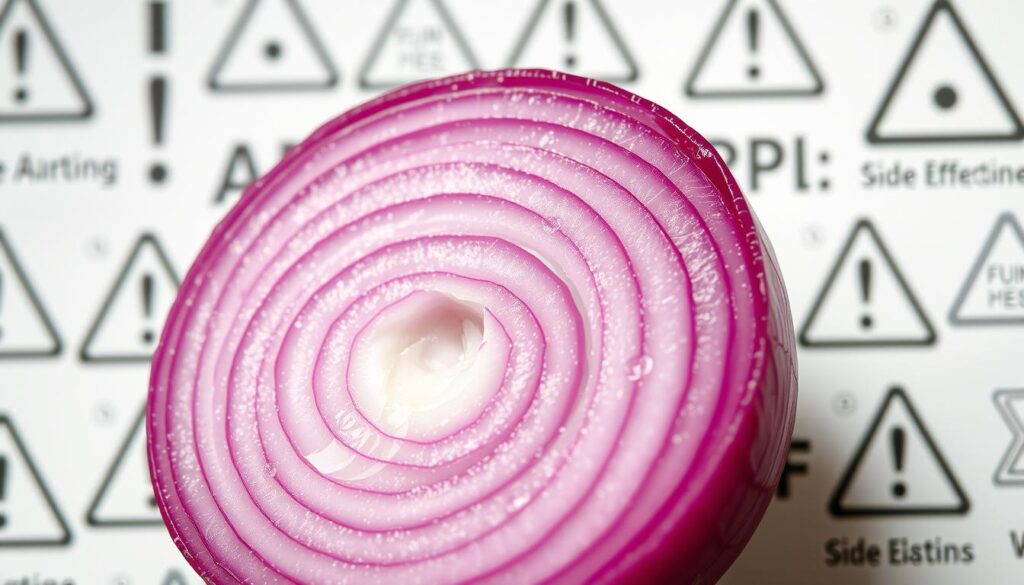
Read more: How to improve digestive health
To enjoy red onions safely, follow food safety tips. Wash them well and store in a cool, dry spot. By being careful, you can enjoy their health benefits without issues.
Conclusion
Red onions are a superfood packed with health benefits. They are rich in antioxidants and flavonoids. These compounds help fight inflammation protect the heart, and may even prevent cancer.
Adding red onions to your meals can boost your health. They help control blood pressure and cholesterol. They also aid in managing blood sugar levels.
Red onions are versatile and delicious. You can enjoy them raw or cooked in many dishes. Including them in your diet can support your overall health and reduce disease risk.
By eating red onions regularly, you get the most from their antioxidants and bioactive compounds. This can help you achieve better health and wellness.
